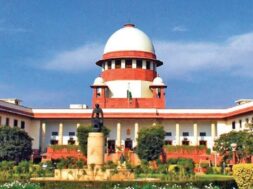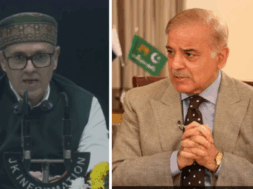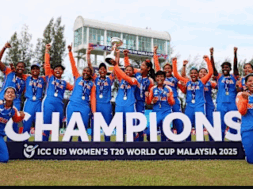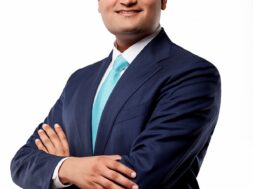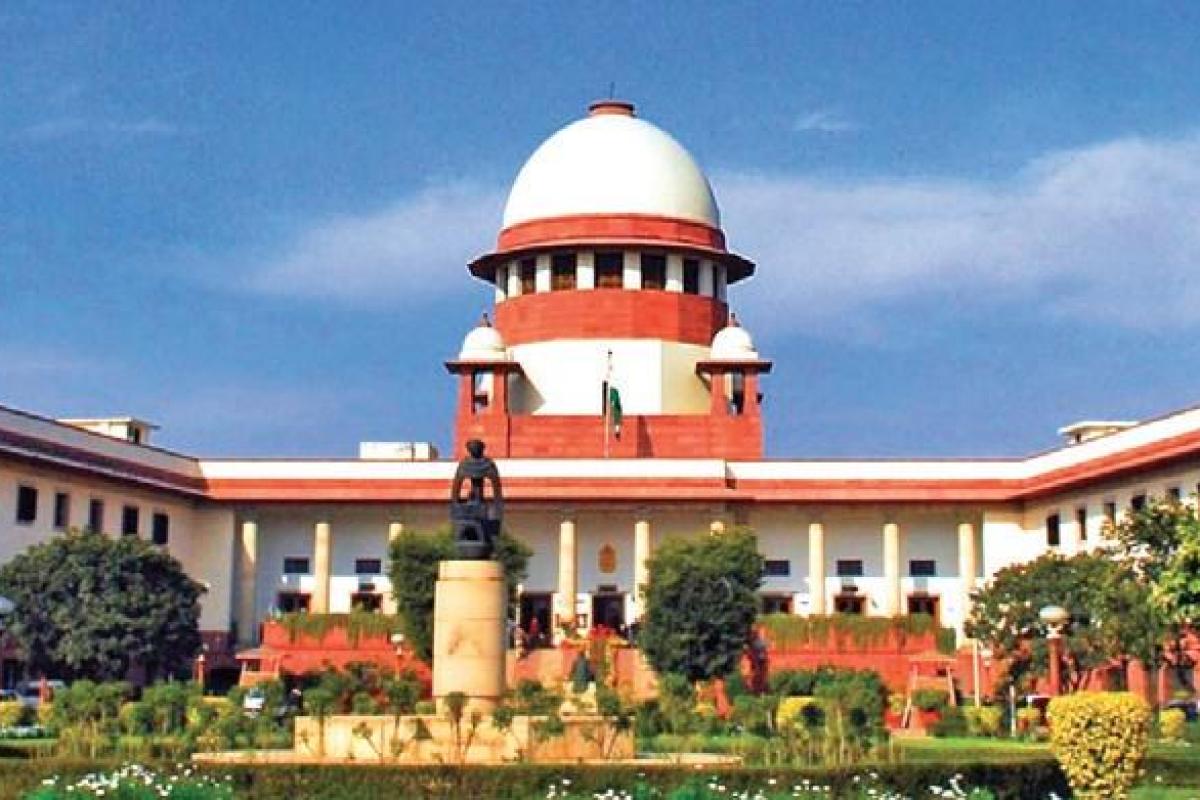
Manas Dasgupta
NEW DELHI, July 20: The Supreme Court on Wednesday referred to a larger bench the Shiv Sena Versus Shiv Sena tussle for recognition because the issues raised by the two sides could involve constitutional matters.
The bench headed by the chief justice NV Ramana and comprising justices Krishna Murari and Hima Kohli issued notices on petitions filed by the group headed by Uddhav Thackeray, the former chief minister and currently the chief of the Shiv Sena, and asked the other side led by the incumbent chief minister Eknath Shinde to file responses by July 27 for consideration by a larger bench and fixed them for hearing on 1 August.
The bench after hearing the arguments of a battery of top advocates representing the two sides felt that the issues raised by the petitioners and respondents touched constitutional matters including a split in a party inside the legislative Assembly, defection, disqualification of members, merger of political parties and such other issues which should be considered by a larger bench.
The Thackeray faction even questioned the propriety of the governor Bhagat Singh Koshiyari in administering oath of office and secrecy to Eknath Shinde when the disqualification proceedings against them was still pending in the apex court. Thackeray group’s advocate Kapil Sibal told the Supreme Court that the governor should not have sworn in the new government when the top court was seized of the matter. He said the Speaker of the Assembly recognizing a whip other than the official whip nominated by the party was malafide.
The Shinde faction represented by Harish Salve counter argued claiming that changing the chief minister was no rebellion against the party and was not a defection in the constitutional spirit.
“What happens to the verdict of people? The 10th schedule, meant to stop defection, has turned topsy-turvy and has been used to instigate defection,” Sibal said, adding that the protection against disqualification was available only in case of a merger and not in the case of the split of a party.
Salve replied saying, “Heavens do not fall if a chief minister is changed. Let us get into if the speaker was appointed as per law and not on the crisis of democracy and all that… Raising a voice within the party without crossing ‘Lakshman Rekha’ is not an act of defection.”
“Some of the issues, consequences of removal of paragraph three (of 10th schedule) and absence of split concept, whether a minority party leader has right to disqualify party leader, these are some of the issues. If you can cull out the issues, we can decide how to proceed, the CJI said, adding that at the moment he was thinking aloud.
“After hearing the counsel, it has been agreed that some issues may, if necessary, be referred to a larger bench also. Keeping in mind the same, to enable the parties to frame the issues, let them file the same preferably by next Wednesday (July 27),” the bench said in its order.
The bench was hearing six pleas related to the political crisis that led to the fall of the Maha Vikas Aghadi (MVA) government in Maharashtra. Out of these, the first one was filed by the Shinde faction against the move to disqualify them by the Thackeray group. At the outset, Sibal said if this principle of majority is to be accepted then every elected government in this country can be toppled despite the fact that there is no protection under the Tenth schedule for such a split.
The bench told Sibal that it has some doubts regarding the consequences of the deletion of a paragraph from the Tenth schedule, which permitted an inner-party split. The CJI, clarifying that he is not expressing any views and only seeks to clear his doubts, said after the removal of paragraph 3, the concept of the split is not recognised. Once there is no split, what are the consequences, he sought to know.
Forty members of Shiv Sena, by their conduct, are deemed to have incurred disqualification by giving up party membership as per para 2 of the tenth schedule, Sibal said. “By voting for a candidate put up by BJP as Speaker in violation of official whip, they have attracted disqualification. Now coming to the Governor, the Governor should not have sworn in the new government when the Supreme Court was hearing the matters,” Sibal said.
He said the Governor could not have sworn the individual who has chosen to separate from the political parties and have incurred disqualification. “Speaker recognizing a whip other than the official whip nominated by the party is malafide. When disqualified members elect a person and they stand disqualified, then the election itself is bad.
“These are all part of the record, these will decide if they have incurred disqualification or not. Records of assembly should be called for. Under which provision of the tenth schedule they are protected. The court needs to decide the issues based on official documents as they are part of the records,” Sibal said.
“In which part of the democratic world people can be brought over to change sides and elected governments can be toppled,” Sibal said, adding that every day’s delay will play havoc with democratic institutions. AM Singhvi, appearing for the former chief whip of Shiv Sena, Sunil Prabhu, said a day before departing for Guwahati, the members of the party’s rebel faction sent an e-mail to the deputy speaker, seeking his removal.
“This email was sent from an unauthorized email ID. The deputy speaker takes it, seizes it, and says it is not on record,” Singhvi said while terming the majority attained by the Shinde faction in the Assembly a “contrived majority.”
Salve counter-arguing said one thing the tenth schedule proposed to do but did not do was to allow a leader to take his flock and lock the key. It is alleged that inner party democracy has been throttled by disqualification proceedings. If there is disaffection within the party and a large number of people in a party feels that another man should lead, what is wrong in that,” Salve said. In a democracy, a group of people may gang up and tell the leader, “sorry, you cannot continue” and that could not be termed as defection. “If a leader gathers strength within the party and stays in it to question the leader without leaving the party. It is not defection,” Salve submitted.
The CJI-led bench on July 11 had granted interim relief to the Uddhav Thackeray faction MLAs by asking Maharashtra Assembly Speaker Rahul Narwekar not to proceed with the plea seeking their disqualification as sought by the Shinde group on the grounds of defying the party whip during the trust vote and the election of the Speaker.
